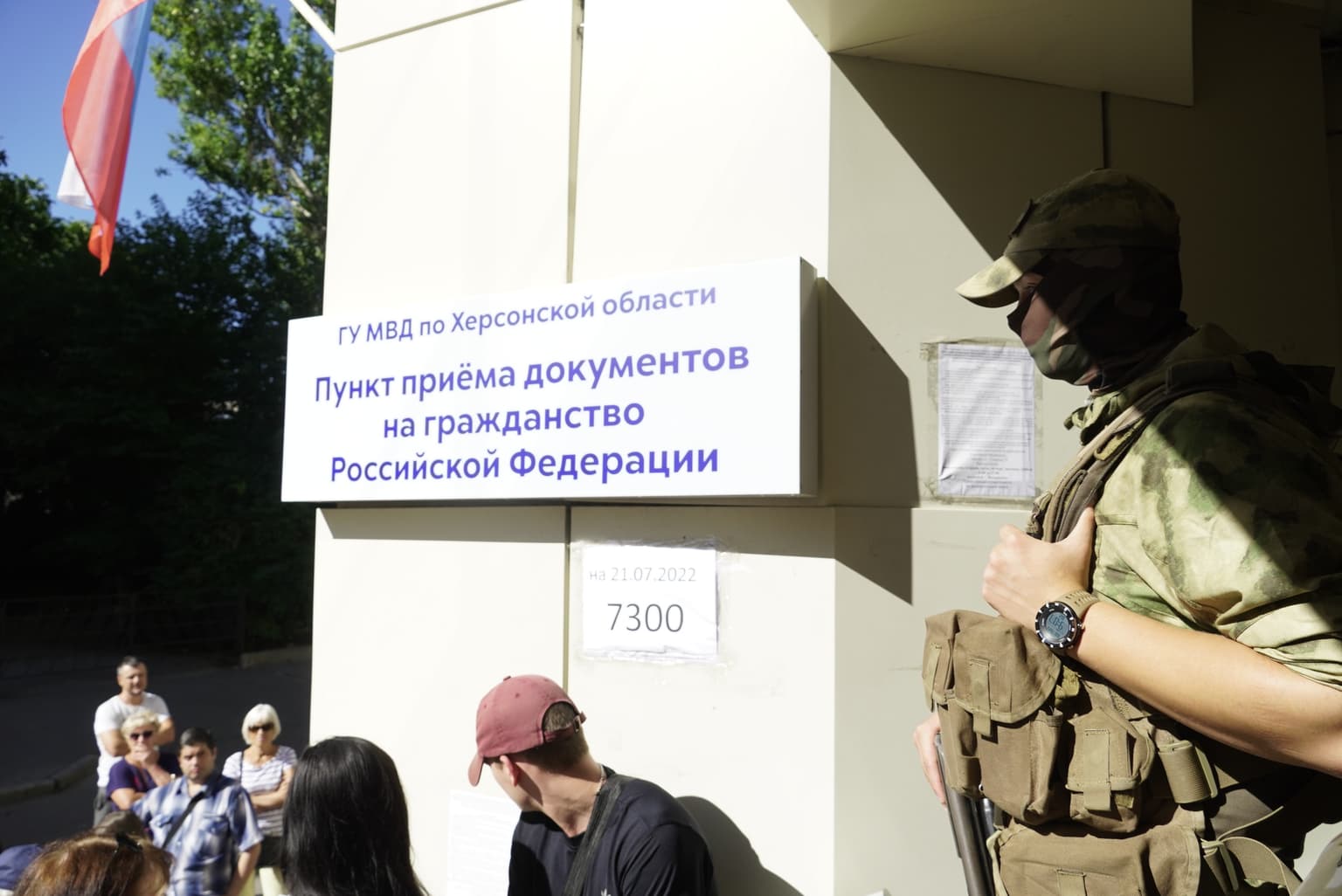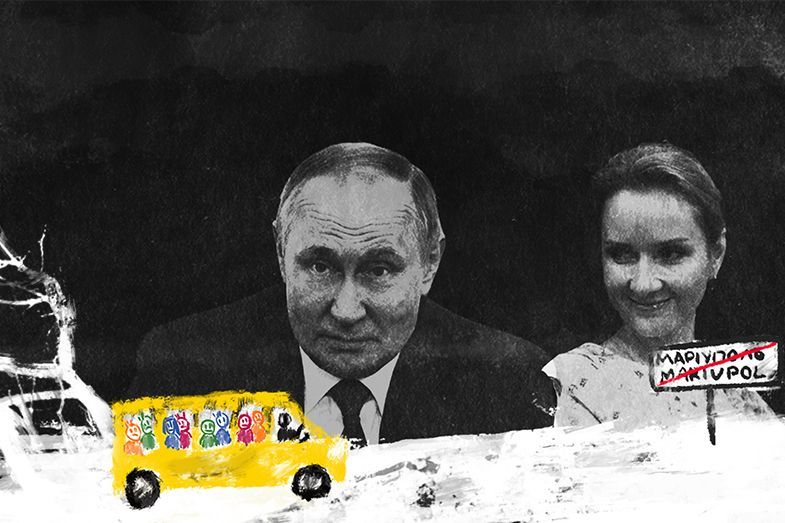Report: Russia carries out forced, systematic passportization in occupied territories

Russia systematically coerces residents of the occupied parts of Luhansk, Donetsk, Kherson, and Zaporizhzhia oblasts to accept Russian passports, the U.S. research group Ukraine Conflict Observatory reported on Aug. 2.
Ukrainians living in the occupied territories "are subjected to threats, intimidation, restrictions on humanitarian aid and basic necessities, and possible detention or deportation," the Yale University researchers said.
The analysis pointed out that these methods mirror those used by Russia in Crimea and occupied areas of Donetsk and Luhansk oblasts since 2014.
Russia's process of forced passportization is two-fold. Firstly, the occupation authorities streamline the process for Ukrainian citizens to acquire Russian passports. Secondly, Russia imposes de facto restrictions against those that refuse, according to the report.
This may include denial of medical services, social benefits, the ability to drive and to work, and even overt threats of violence or intimidation.
On July 21, the National Resistance Center said that Russian occupation authorities in some parts of Kherson Oblast force the residents to accept Russian passports under the threat of deportation. In other cases, those who hold on to their Ukrainian passports reportedly face losing their property rights, prison sentences, and mobilization into the Russian army.
During the massive flooding of the Kherson Oblast following the breach of the Kakhovka dam, Russia allowed evacuations only to Russian passport holders, the General Staff of Ukraine's Armed Forces reported.
Under Putin's executive order, anyone living in the occupied territories who refuses to accept Russian citizenship will be considered a foreigner and could face deportation starting on July 1, 2024.
According to the Ukraine Conflict Observatory, Russia's methods constitute a serious violation of international law, as the Hague Convention of 1907 forbids to "compel the inhabitants of occupied territory to swear allegiance to the hostile Power."











